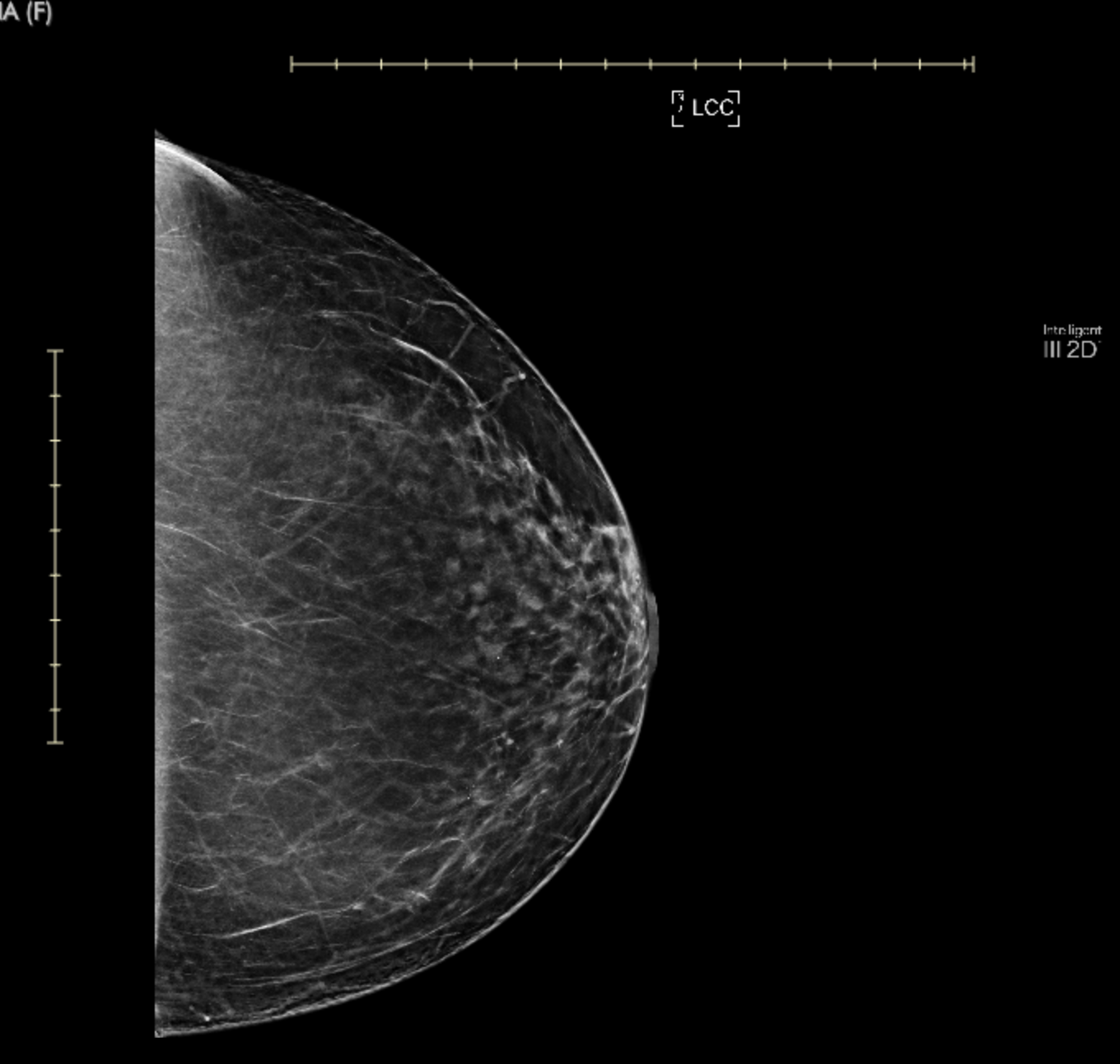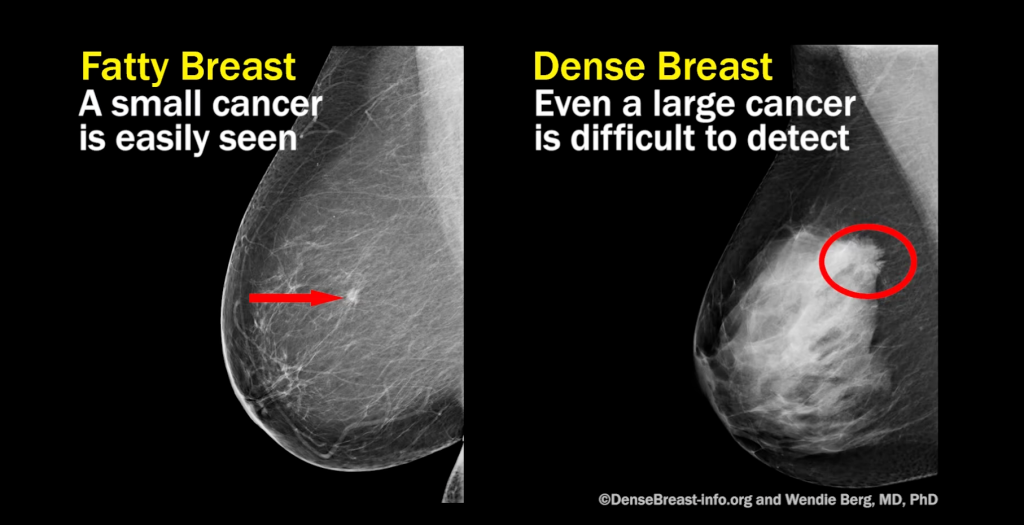Smash a melon, NOT my Boob!
Do Mammograms MISS Cancer?
Mammograms can miss up to 40% or more of invasive breast cancers, particularly in women with dense breasts.

Dense Breasts
Do mammograms miss cancer in Dense breasts?
Dense breasts have more fibroglandular tissue than fat. About 40–50% of women aged 40–74 have dense breasts. Breast density is influenced by genetics, hormones, age, body composition, pregnancy. Density usually decreases with age. Thinner women and those with fewer pregnancies tend to have denser breasts. Breast density changes over time.
“For women with dense breast tissue, who are at much higher risk for developing breast cancer, the performance of mammography is at its worst. Consequently, many early cancers go undetected when they are the most treatable. Improved cancer detection for women with dense breasts would decrease the proportion of breast cancers diagnosed at later stages, which would significantly lower the mortality rate. The emergence of whole breast ultrasound provides good performance for women with dense breast tissue, and may eliminate the current trade-off between the cost effectiveness of mammography and the imaging performance of more expensive systems such as magnetic resonance imaging.” PMCID: PMC10079278

Early Screening Conundrum
Dense Breasts, Younger Screening: A Double Burden for Women
In April 2024, the U.S. Preventive Services Task Force (USPSTF) updated its breast cancer screening guidelines, lowering the recommended age for routine biennial mammograms from 50 to 40 for women at average risk. In contrast, several European perspectives have taken a more cautious stance. The Nordic Cochrane review, for example, has argued that with advances in treatment and the mounting risks of overdiagnosis and overtreatment, broad-based mammography screening may no longer be justifiable at any age—concluding that inviting women to screening “no longer seems reasonable.”
Same year in September 2024, U.S. mammography facilities started to notify patients whether they have “dense breasts” or “not dense breasts.” While this rule was designed to promote transparency, it carries unintended consequences: psychological distress from an alarming label, confusion in the absence of clear guidance, and pressure to pursue additional imaging such as 3D mammography, which exposes women to higher radiation doses.
These two policy shifts—lowering the screening age to 40 and mandating breast density notification—create a particularly troubling overlap. Women in their 40s are the group most likely to have dense breast tissue, with density at its peak during these years. As a result, millions of women newly pulled into screening will now not only be told they have dense breasts but may also feel compelled to undergo more imaging, despite the lack of proven survival benefit and the added risks of higher radiation, false positives, and overdiagnosis.
Women who carry BRCA1 or BRCA2 gene mutations are considered high-risk individuals, medical guidelines recommend earlier and more frequent screening, including annual mammograms starting as early as age 30 (Cancer.org). However, initiating mammography at a younger age means women are exposed to more cumulative radiation over their lifetimes, a concern that is especially relevant given the heightened sensitivity of breast tissue in premenopausal women (National Cancer Institute). Careful counseling is essential to ensure women understand both the protective role and the potential harms of prolonged imaging surveillance.
Our Stories
Smash a melon, mot my boob!
Disclaimer
The information provided on Smash a Melon, NOT My Boob! is for educational and awareness purposes only and is not a substitute for professional medical advice, diagnosis, or treatment. We are not medical professionals.
Always seek the advice of a qualified healthcare provider regarding any medical condition, screening decision, or treatment option.
Connect with us today and join our challenge!
Subscribe
Join the conversation
Help us smash the silence.